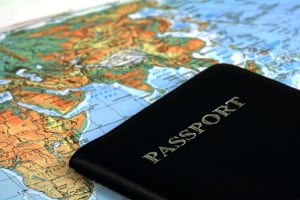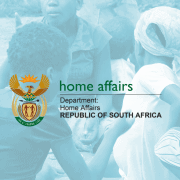|
Getting your Trinity Audio player ready...
|

Home Affairs Minister Malusi Gigaba being sworn into office in May 2014. His department is responsible for the administration of immigrants in the country as well as the protection of their rights. Image source: GCIS
Immigrants in South Africa could be forgiven for thinking that the country might not, after all, be the right place to settle down.
The xenophobia that broke out in April 2015 was just the tip of the iceberg of the daily obstacles that South African officials and citizens throw in the path of foreigners. “What we are witnessing is simply a moment in the slow violence to which immigrant communities are subject every day and in every interaction with South African officialdom,” wrote Corruption Watch executive director David Lewis in April.
This ranges from bribery at the border to corruption on the streets of whichever city they settle in.
But immigrants are not powerless. Whether they are permanent residents or refugees, they have recourse to rights under the Constitution, as well as other domestic and international laws. Undocumented immigrants also have rights under the Constitution, although to a lesser degree. All of these people are fully entitled to exercise those rights when necessary.

Immigrants should give themselves the best chance of complying with the law – but also of dealing with officials who flout the law – by reading up on their rights under the Constitution
For instance, section nine states that “Everyone is equal before the law and has the right to equal protection and benefit of the law”, while in section 12 we read that “Everyone has the right to freedom and security of the person, which includes the right (a) not to be deprived of freedom arbitrarily or without just cause and (b) not to be detained without trial”, among other provisions.
Even workers who have no work permits have rights, and are entitled to certain forms of protection – lest anyone assume that they don’t. And government officials are not allowed to operate outside the law when it comes to dealing with foreigners.
The Consortium for Refugees and Migrants in South Africa (CoRMSA) has published guides, handbooks and other documentation which outline the rights and services to which immigrants are entitled. These cover issues relating to crime, labour, social grants, health, housing, banking and other matters. CoRMSA staff will also answer questions not covered in the documentation.
Government officials have to abide by the law
This situation was highlighted recently in the case of Emeka Christian Okonkwo, a Nigerian shopkeeper who lives legitimately in East London. His small, properly licensed shop in the city sold mobile phones and gold chains.
But on 3 August 2012 Okonkwo was arrested without a warrant and detained for 75 days in a crowded cell with a group of awaiting trial prisoners. He was released with no explanation and later took the Department of Home Affairs to court for compensation related to loss of income and other damages.
In the judgment handed down in the East London High Court by Judge Phakamisa Tshiki on 30 June, Okonkwo’s ordeal is described in detail. He spent that time in jail without being charged or “taken to court or dealt with in terms of the applicable law”. During that time nobody knew where he was, besides his captors. Then, “having detained without trial for such a period the plaintiff was simply released from custody without appearing in court”, Tshiki added.
He was appalled by the authorities’ actions. “This, in my view, is a reprehensible treatment in the extreme,” he said in his judgment. Tshiki also reprimanded the state for dragging the case out for three years, when it knew it had no defence and could have dealt with the matter speedily and without pointless resistance.
Despite the state’s opinion that Okonkwo’s claim of R800 000 was too much and that an amount in the region of R400 000 would be more appropriate, Okonkwo was awarded R750 000.
The state also argued that in arriving at a remedy, the court should take into account the fact that it would involve public funds.
This case shows that immigrants should give themselves the best chance of complying with the law – but also of dealing with officials who flout the law – by reading up on their rights under the Constitution, and, like Okonkwo, not being afraid to hit back when those rights are violated.
Incompetent and unhelpful
In another incident, Home Affairs targeted the wrong person when they refused to allow a Zimbabwean attorney back into South Africa after he crossed the border on 1 February to attend a funeral. Eucan Gwanangura, a senior partner in Pretoria-based law firm Gwanangura Singini Attorneys, is a permanent resident of South Africa.
He was detained at the Beitbridge border post on his way back two days later and was forced to file an urgent application to be allowed back into South Africa. It took three days before Judge Ronel Tolmay ruled that the border authorities must authorise his entry.
In the North Gauteng High Court in June, Judge Vuyelwa Tlhapi ruled that the department must pay the costs that Gwanangura incurred at the time. In his application, Gwanangura told the court that Home Affairs officials accused him of misleading them when he explained, in response to their demand that he tell them how he got his permanent residence permit, that he followed the correct procedure.
The officials were not only unhelpful, he said, but declined to identify themselves.
“I suffered prejudice because some government officials are incompetent in that they lack training in respect of requisite knowledge,” he argued in his application.
Gwanangura is a legal expert who is well aware of his rights, but it’s not necessary for immigrants to be lawyers or attorneys to know their basic rights. Empowerment through knowledge is the best way to gain protection against unscrupulous people.








